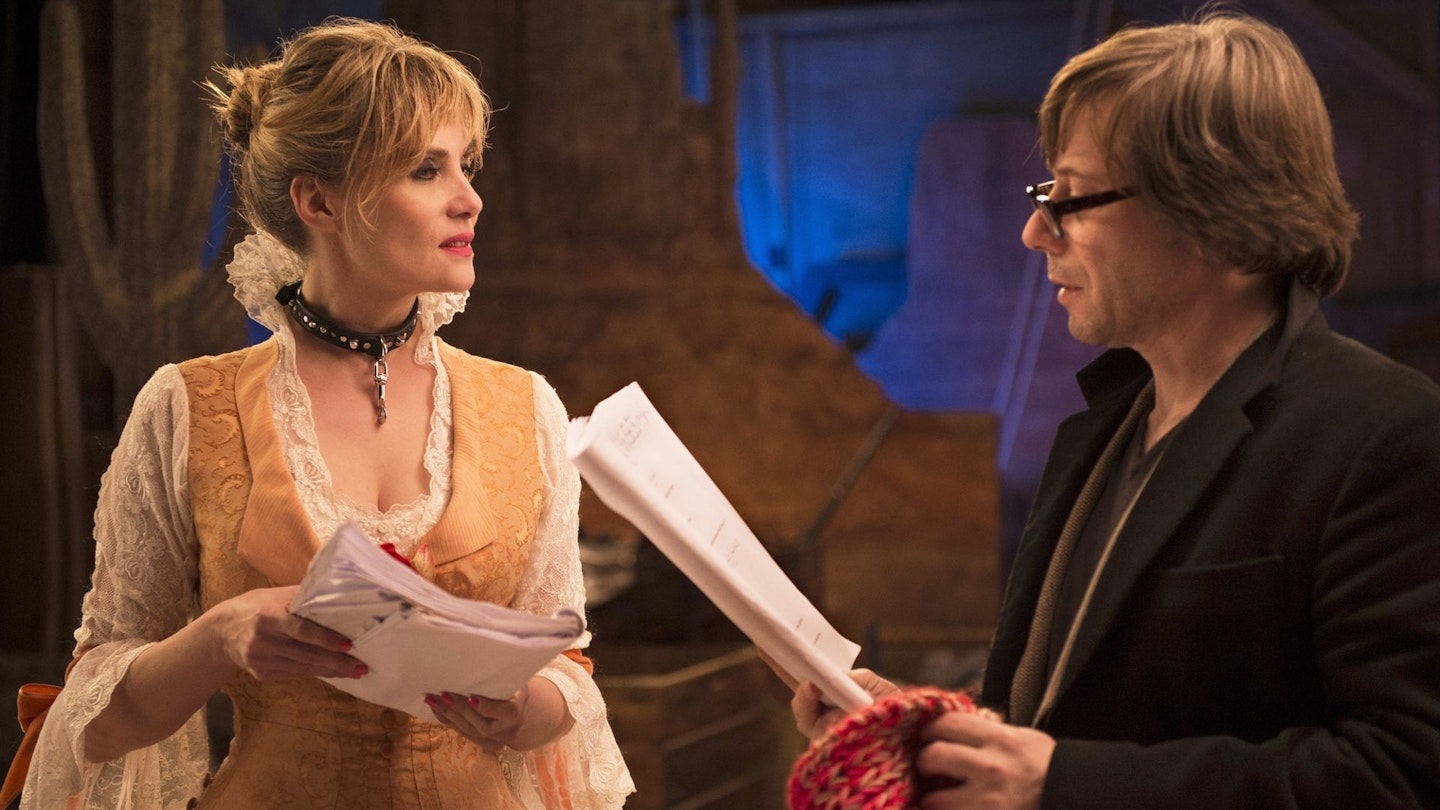There's a trite cliché in film criticism, which demands that any director adapting a stage play must be lambasted if they fail to “open out” the play, or if the film remains “stage-bound”. That might prove to be a problem for Roman Polanski’s latest film, a Francophone adaptation of David Ives’ 2010 play, given that it is set entirely in a theatre.
After a frustrating day of auditioning actresses for the lead role in his new play, adapted from the 1870 novella Venus In Furs by Leopold von Sacher-Masoch (from whom the term ‘masochism’ is derived), playwright-turned-director Thomas (Mathieu Amalric) is on the verge of giving up when in walks Vanda (Emmanuelle Seigner), who not only has the same name as the character, but already knows the text by heart. As she auditions, with Thomas reading the part of masochist Henri, Vanda begins to manipulate Thomas, then to dominate him. As the pair flirt, spar and goad each other, the film explores the control dynamic between director and actress (and, by extension, gender roles), as well as the relationship between an adapter and their chosen subject matter, an element made more intriguing by the fact that Polanski has explored similar submissive/dominant relationships throughout his career (notably in Bitter Moon), that Amalric bears a striking resemblance to a young Polanski, and that Seigner is Polanski’s real-life wife; anyone who relishes meta-textual interpretation may find Venus In Fur as delicious as dissecting a Woody Allen film for clues about the director’s pathology.
As with Polanski’s last film, an adaptation of Yasmina Reza’s play God Of Carnage, your enjoyment may depend on your tolerance for talky, stage-bound (said it!) think-pieces. Taken for what it is, however — an engaging two-handed play, wittily adapted and tempestuously performed by Amalric and Seigner — Venus in Fur is an enjoyable romp, regardless of how much baggage the audience, or the filmmaker, brings to the table.
